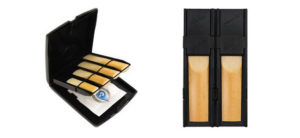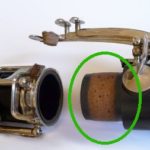Good instrument care will prolong the life of your instrument and reduce the need for servicing and repair. At WindCraft Repair, we see many instruments come across the workshop bench that require work that is entirely preventable.
Below, we start with some basic tips for keeping all instruments in good shape. You’ll find some general tips for looking after your wind instrument. Click here for more specific suggestions for BRASS and WOODWIND
BASIC TIPS FOR GENERAL INSTRUMENT CARE
Maintain good hygiene
Play your instrument with clean hands and a clean mouth. Dirty hands can tarnish silver, brass and wood, while food particles (and even the sugars from soft drink) will encourage bacteria which can lead to red rot and corrosion. Nobody likes a smelly, leaking instrument!
Adopt a simple post-play routine
After use, follow a simple routine: remove all condensation from the inside of you instrument (with a good pull-through on woodwind instruments) and wipe it down. Then put it in a case for storage. A moist environment is damaging to the longevity of your instrument.
NEVER close the lid of your case WITHOUT closing at least one latch or part of the zipper to prevent your instrument from falling out when you pick up your case and the lid falls open.
Use protection
Place a cap on your mouthpiece or store it in a pouch; put your reed away after use, in a reed guard or case.
 Keep your instrument in a sturdy, well-fitting case or a quality gig bag.* These things are made to protect your instrument for a reason, so make sure you use them!
Keep your instrument in a sturdy, well-fitting case or a quality gig bag.* These things are made to protect your instrument for a reason, so make sure you use them!
*The choice between a gig bag or case is always based on a compromise between comfort and protection: don’t expect the same protection you get from a case out of a gig bag. If you choose a gig bag, don’t buy the cheapest one.
Don’t force anything.
The parts of your instrument should fit together without using force. Never take to your instrument with pliers or a heavy hand. If something is stuck, bring it into the workshop.
Prevent wear with lubrication
Regularly lubricating areas of friction will increase the longevity of your instrument. For brass instruments this means the valves and slides; for woodwind instruments this means the tenon corks.
Avoid extreme temperatures
Extremes of heat and cold are bad for your instrument and can cause severe damage. For example, it’s never a good idea to leave your instrument in the car.
